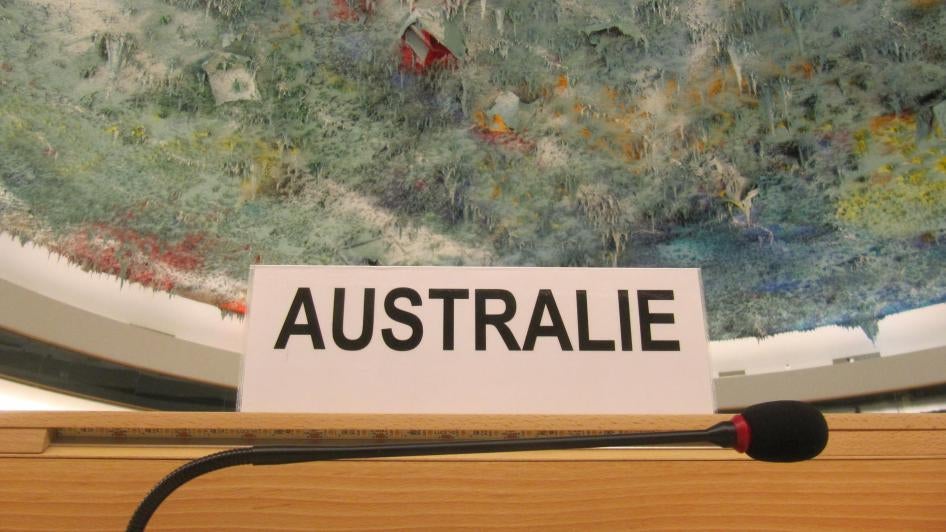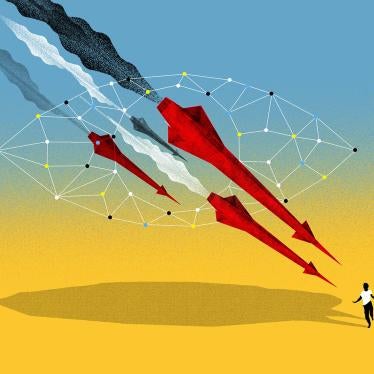(Geneva, July 8, 2021) – Australia’s rejection of recommendations from United Nations member countries to end the mandatory detention of asylum seekers and close offshore processing centers shows continuing disregard for the rights of migrants, Human Rights Watch said today. In its July 8, 2021 response to its quadrennial Universal Periodic Review (UPR) before the UN Human Rights Council in Geneva, Australia pledged to do more to reduce Indigenous incarceration rates and act on climate change.
“Australia paints a picture of itself for the global stage that doesn’t match the reality at home,” said Sophie McNeill, Australia researcher at Human Rights Watch. “Government claims that Australia is committed to the human rights of refugees and asylum seekers are absurd so long as harmful offshore detention polices continue and people remain for years in immigration detention.”
Established in 2006, the Universal Periodic Review involves a comprehensive review of the human rights records of all UN member states by other countries in a rotation every four and a half years. Local and international organizations, as well as the country under review, have the opportunity to contribute reports to inform the review process.
Australia rejected recommendations to prohibit the detention of children who are refugees or asylum seekers, contending that “immigration detention of children is always a last resort and children are detained for the shortest practicable time.” But the statement contradicted the harsh treatment of 6-year-old Kopika Murugappan and her 4-year-old sister, Tharnicaa, who recently spent three years in immigration detention. Both sisters were born in Australia.
Australia accepted many recommendations to reduce the overrepresentation of First Nations people in the criminal justice system. However, Australia has a history of failing to carry out recommendations designed to reduce Indigenous incarceration rates. Thirty years after the landmark Royal Commission into Aboriginal Deaths in Custody, many of its recommendations have not been fully implemented. Despite Australia’s acceptance of recommendations to reduce Indigenous incarceration rates in its 2015 UPR, by 2019, Indigenous people, who constitute 3 percent of the Australian population, constituted 28 percent of its adult prisoners.
Australia also failed to commit to a federal policy aim to raise the age of criminal responsibility, despite concerns raised by more than 30 countries at the UPR regarding the current policy, which allows children as young as age 10 to face criminal prosecution and sentencing. While some Australian state governments have announced an intention to raise the age of criminal responsibility, federal leadership is also needed, Human Rights Watch said.
Australia’s pledge that it will meet its 2030 Paris climate target and reach net zero as soon as possible, preferably by 2050, is a positive development. However, the government of Prime Minister Scott Morrison has not shown that it is willing to take the concrete steps needed to meet this pledge.
“While Australia is pledging at the Human Rights Council to meet its 2030 Paris climate target, the Morrison government is announcing financing assistance to build a coal mine in Queensland,” McNeill said. “People should not be surprised that a recent UN report listed Australia as last on action in response to climate change among more than 170 UN member states.”








